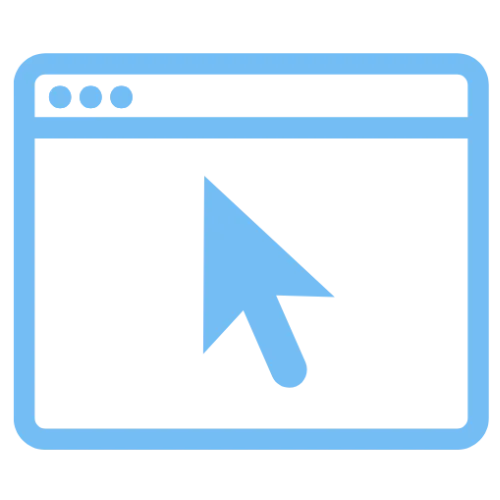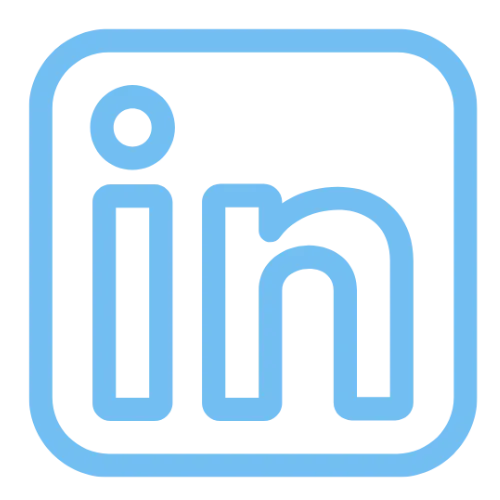
Embracing Professional Change: Thriving Through Career Shifts
Starting Fresh: When Your Work Life Changes
Change is hard, especially when it affects your job. Maybe you lost your job suddenly, are starting a new role, or thinking about changing careers completely. These moments can feel scary and overwhelming. But I want you to know something important: You don't have to face these changes alone.
I've spent years helping people just like you move through tough career changes. I'm here to be your guide, to give you a safe place to talk, and to help you build a better career path. I've helped thousands of people through their hardest work challenges, and I've seen how these tough times often lead to amazing personal and professional growth.
The Feelings That Come With Career Changes
Changing jobs is about more than just updating your resume and looking for new openings. There's a big emotional side that many people don't talk about. Losing a job, changing workplaces, or switching careers can make you feel sad, uncertain, and even make you doubt yourself. These feelings are completely normal.
The key is to be both kind to yourself and strong during these changes. Being kind means giving yourself time to feel sad, worried, or lost for a while. Being strong means taking steps toward new opportunities, even when the path ahead isn't clear.
A Real Success Story
One of my clients, Veronica, went through a difficult work situation that ended with her losing her job. When Veronica first came to me, she was emotionally exhausted from working in a toxic environment where no one valued her work. Losing her job was painful, but it finally gave her the chance to step back and think about what she really wanted from her career.
Over six months of working together, Veronica found her confidence again, set clear boundaries for future jobs, and completely changed her career outlook. What started as a crisis turned into a chance for her to reinvent herself professionally.
Here's what Veronica said about our work together:
"Nick was instrumental in helping me navigate a toxic work environment, which ended in a layoff. Through my work with Nick, I was able to remember my value, set clear goals, and really tap into what did and did not serve me in an employer. This work resulted in a 360-degree change in focus and profession, and a new outlook on life and what professional satisfaction and success really means to me. Nick is a true gift – literally – he was my 50th birthday present to myself. I have recommended him to several friends and he continues to be a great cheerleader and friend to me! Give yourself the gift of Nick!" – Veronica
Stories like Veronica's show what career coaching is really about. It's not just about finding another job—it's about rediscovering who you are, what you truly value, and moving into a career that fits your unique skills and goals.

Why Career Changes Feel So Hard
Research shows that career changes are among the most stressful life events. A study found that people going through career changes often feel the same level of stress as those facing major personal life changes. This makes sense because our jobs are often a big part of how we see ourselves.
Our brains are wired to see change as a threat, which can cause anxiety, sleep problems, trouble focusing, or even physical symptoms. Understanding this natural response helps normalize what you're experiencing and provides a foundation for developing good coping strategies.
Research also shows that people who have support systems—like career coaching, mentorship, or strong personal networks—handle these changes better and are often happier with their next career move.
Your Step-by-Step Plan For Moving Forward
If you're facing a career change right now, here's a clear plan to help you navigate this time with both emotional awareness and practical action:
1. Feel Your Feelings Without Getting Stuck
Career changes can bring up strong emotions, and that's okay. Instead of pushing these feelings aside to "stay professional," take time to acknowledge them. Whether you feel frustrated, sad, or excited about what's next (or all three at once) – all your feelings are valid.
Make space to process these emotions—maybe through writing in a journal, talking with trusted friends, or working with a coach. The goal isn't to get rid of these feelings but to prevent them from blocking your progress.
Remember that processing emotions isn't a straight line. You might feel confident one day and overwhelmed the next. This up and down is a normal part of the journey.
2. Look Closely at What You Have to Offer
Before jumping into job applications or making big career decisions, take a step back to gain clarity about yourself:
Skills List: Beyond your technical skills, identify your transferable skills—abilities that add value in different roles and industries. These might include communication, leadership, problem-solving, or project management.
Values Check: What really matters to you in your work life? Is it creativity, stability, independence, intellectual challenge, making a difference, or something else? Your values serve as your internal compass for making decisions.
Work Style Preferences: Think about how you work best. Do you thrive in team environments or prefer working alone? Do you need structure or flexibility? Understanding your work style helps identify places where you'll naturally do well.
Proudest Moments: Reflect on your best professional achievements. What specific contributions have you made that created value? These stories not only boost your confidence but also provide strong examples of your capabilities for future employers.
3. Define Success Your Way
Many people find that their definition of success changes dramatically during career transitions. The things that once motivated you—like title, salary, or status—may not seem as important anymore.
This is your chance to intentionally redefine what professional success means to you. Maybe climbing the corporate ladder no longer feels right. Perhaps it's time to explore a new industry that better aligns with your passions. Maybe success now means finding a role that offers flexibility and better work-life balance rather than just advancement opportunities.
Your next step should reflect what you truly want at this stage of your life and career, not what others expect from you.
4. Create a Clear Action Plan
With clarity about your strengths, values, and definition of success, you can now develop an action plan that includes:
Market Research: Identify industries, companies, and roles that align with your refreshed career vision. Research trends, growth projections, and required qualifications.
Skills Gap Check: Determine what additional skills or credentials might make you more competitive in your target area. This might involve formal education, certifications, or self-directed learning.
Network Mapping: Create a strategic approach to using and expanding your professional connections. Remember that networking isn't just about finding job leads—it's about building relationships and gathering insights.
Personal Branding: Refresh how you present yourself professionally across all platforms—your resume, LinkedIn profile, portfolio, and even your interview stories should consistently reflect your unique value.
Application Strategy: Rather than applying to dozens of positions, focus your energy on targeted opportunities that truly align with your refreshed career vision.
5. Build a Strong Support System
Surrounding yourself with the right people can dramatically influence your transition experience. Your support system should ideally include:
Professional Support: Career coaches, mentors, or former colleagues who understand your industry and can provide specific guidance.
Emotional Support: Friends and family who can offer encouragement and perspective during challenging moments.
Community Support: Consider joining professional groups, alumni networks, or career transition communities where you can connect with others going through similar changes.
Practical Support: Identify resources for specific needs like resume writing, interview preparation, or industry introductions.
Remember that seeking support isn't a sign of weakness—it's a smart approach to navigating change effectively.
Turning a Challenge into an Opportunity
The most successful career transitions share a common thread: they transform what initially feels like disruption into an opportunity for genuine alignment. This isn't just positive thinking—it's a strategic mindset shift that opens you to possibilities you might otherwise miss.
Try asking yourself these questions:
What parts of my previous job was I ready to leave behind?
What skills or interests haven't I had the chance to fully use?
If I could design my ideal work life, what would it include?
What lessons from this transition will help me in my next chapter?
These questions help shift your thinking from what you've lost to what you might gain—from focusing on the closed door to spotting the open windows.
A Safe Place to Land and Launch
If you're feeling uncertain about what's next, I want you to know that I'm here to help. I can help you regain confidence, define your next steps, and move forward with clarity. My approach combines practical career strategy with emotional support, creating a foundation from which you can both heal from past work experiences and build toward a more fulfilling future.
Give yourself the same gift that Veronica gave herself—the gift of support, clarity, and transformation with Nick as your guide. Let's work together to turn this transition into an opportunity for real professional renewal.
Taking the First Step
Career transitions can feel overwhelming when viewed as one massive change. Instead, focus on taking just one small step today—whether that's updating your LinkedIn profile, reaching out to a former colleague, or simply setting aside time to think about what you truly want next.
Remember that every important career change begins with a single first step. You don't need to have everything figured out to begin moving forward.
And if you'd like guidance on that journey, I'm here to help. Together, we can navigate this transition with both kindness and strategic action, transforming what might initially feel like a career setback into the foundation for your most fulfilling professional chapter yet.
Ready to transform your career challenge into an opportunity? Contact me today to schedule a free consultation where we can discuss your specific situation and explore how career coaching might help you move forward.
--
Ready to transform your professional journey? At CoreTactic (https://coretactic.net), our certified career coaches specialize in helping professionals find fascinating careers, maximize career enjoyment, and develop the confidence needed to excel in interviews and beyond.
Whether you're searching for "career coaching near me," exploring interesting jobs, wanting to start a new business or need guidance setting meaningful performance goals, our comprehensive coaching framework delivers results. Our team of expert coaches, led by Nick Rustad, MBA, brings over 25 years of leadership experience to help you navigate career transitions with clarity and purpose. We also have a startup incubator program called i2i or Interest to Income. Let’s turn your interests into income in 90 days or less.
Don't navigate your career path alone—connect with a CoreTactic coach today for a complimentary consultation and discover how our personalized approach to career coaching can help you achieve lasting professional fulfillment. Your most fascinating career is waiting! Book a call today @ call.coretactic.net








